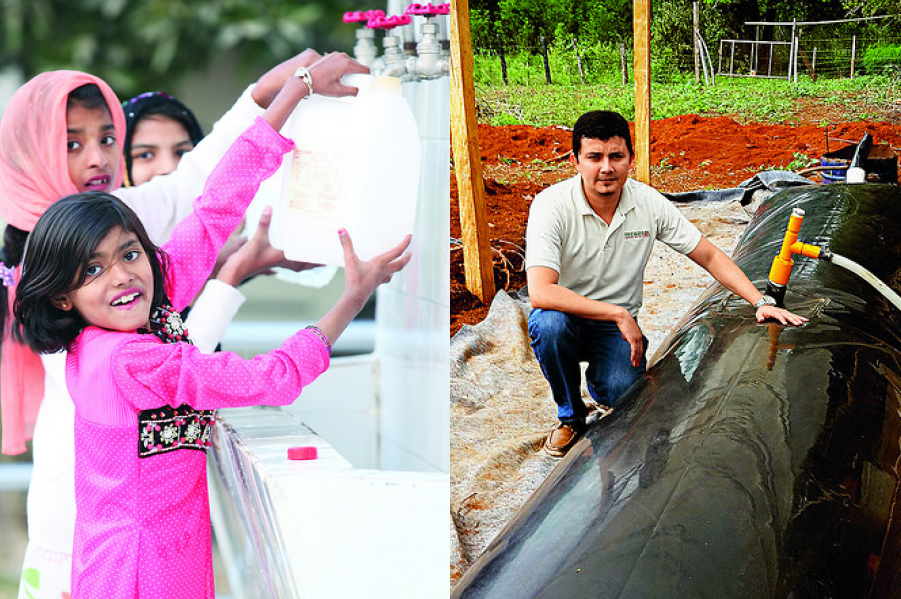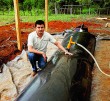Just as Earth Day 2015 strives to ‘accelerate the global green economy’, Nestlé is helping to ensure a positive future for our planet.
Few examples of recent work done:
Sustainable water use in Pakistan
“Reduce, reuse and recycle.” These watchwords underpin Nestlé’s Commitment on Water Stewardship, and water-stressed Pakistan is the first key market where the company has introduced a local masterplan with responsibilities, targets and deadlines to direct water efficiency and sustainability improvements. (See interactive 2014 Nestlé in society report: storage.nestle.com/nestle-society-full-2014/index.html#132) In December Nestlé Pakistan signed a partnership deal with the World Wildlife Fund (WWF) to support the company’s sustainable use and stewardship of water. www.nestle.com/media/news/nestle-pakistan-mou-wwf-water
Plant protein eases burger burden
Nestlé brand Tivall offers consumers healthy, nutritious meat substitute products that are also better for the environment. In Sweden the the company undertook a life-cycle assessment comparing the environmental impact of a vegetarian burger (Hälsans Kök) to a conventional meat burger. (See interactive 2014 Nestlé in society report: storage.nestle.com/nestle-society-full-2014/index.html#157/z) The assessment showed that a Tivall burger had a considerably lower environmental impact than the meat burger. On the basis of this study and others, Nestlé is researching new, sustainable protein sources. Read the Nestlé Healthy Kids Guide to Vegetable Gardens: www.nestle.com/asset-library/documents/nutrition_health_w...
Maggi Malaysia packaging savings add up
Nestlé cut the amount of packaging it used by 100,000 tonnes in 2014, and the Maggi brand contributed to this achievement in Malaysia, where new moulding equipment was introduced to reduce the thickness of glass bottles and save more than 1,200 tonnes of glass. (See interactive 2014 Nestlé in society report: storage.nestle.com/nestle-society-full-2014/index.html#166/z) In Thailand, Maggi cut the amount of plastic used in bottles and caps, optimised shipping cases and replaced paper labels with PET shrink film to achieve significant plastic and paper board savings.
Easy to digest: rainforest protection
In 2014 Nestlé invested in biodigesters for livestock farmers in Panama that turn animal waste into gas for cooking and liquid fertiliser. The farmers no longer rely on wood for fuel, which cuts greenhouse gas emissions and reduces deforestation, and the digesters dispose of animal manure. (See interactive 2014 Nestlé in society report: storage.nestle.com/nestle-society-full-2014/index.html#187/z) In 2014 Nestlé backed the New York Declaration on Forests to halt and reverse forest loss, and endorsed the CDP climate-change initiative to remove commodity driven deforestation from all supply chains by 2020.
















